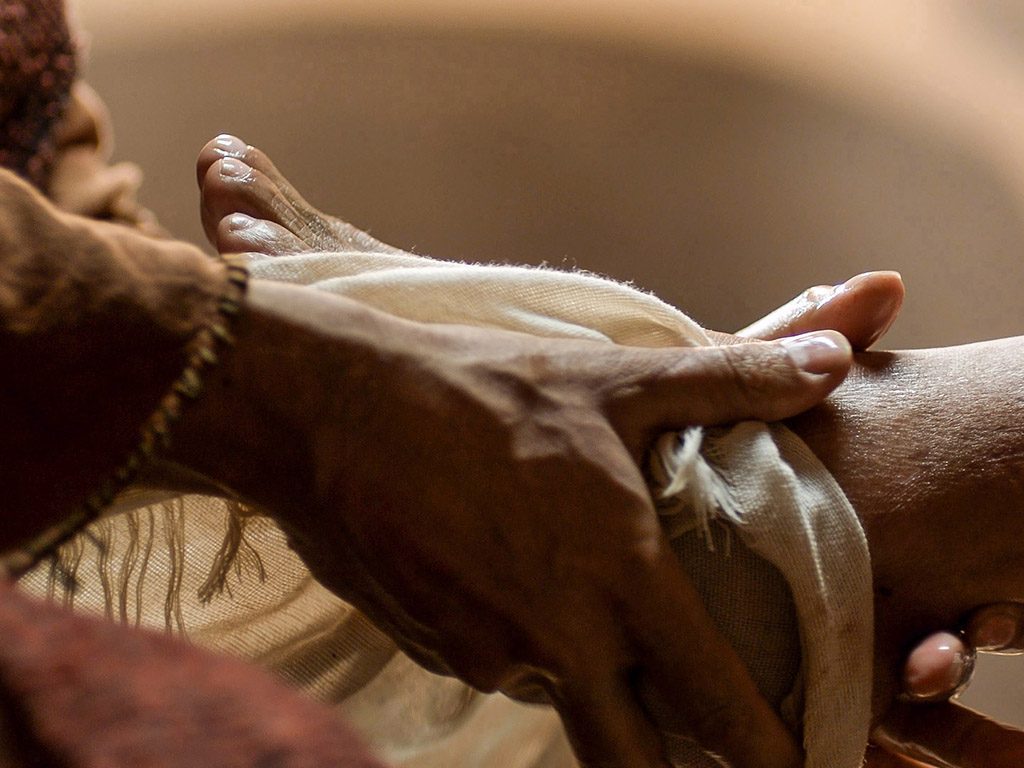The Catholic Church just celebrated a great feast: Christ, King of the Universe. Christ’s way of leading and influencing was quite the opposite of what people expected in the Messiah. They assumed He would come to save the people Israel as a military giant or political figure. That He would make right through might.
[bctt tweet=”Christ’s way of leading, was quite the opposite of what people expected. They assumed He would come to save the people Israel as a military giant or political figure. That he would make right through might.” username=”BrettPowellorg”]
Jesus was neither a military giant nor a great political figure. That is exactly why His example is so important, especially for those of us who are called to imitate His kingly leadership in some way.
Here are three lessons all leaders can learn from the life and leadership of Jesus.
Leadership is a Stewardship
This lesson is beautifully illustrated in the Gospel account of Jesus healing the servant of a Roman Centurion (Matthew 8:5-11).
“When Jesus entered Capernaum, a centurion approached him and appealed to him, saying, ‘Lord, my servant is lying at home paralyzed, suffering dreadfully.’ He said to him, ‘I will come and cure him.’ The centurion said in reply, ‘Lord, I am not worthy to have you enter under my roof; only say the word and my servant will be healed. For I too am a person subject to authority, with soldiers subject to me. And I say to one, ‘Go,’ and he goes; and to another, ‘Come here,’ and he comes; and to my slave, ‘Do this,’ and he does it.’ When Jesus heard this, he was amazed and said to those following him, “Amen, I say to you, in no one in Israel have I found such faith.”
The Centurion recognized that Jesus had authority because he lived under authority. This was such an astonishing insight that Jesus said of him, “Amen, I say to you, in no one in Israel have I found such faith.” It seems extremely important to Jesus that we leaders learn to live and lead under authority, His authority.
[bctt tweet=”It seems extremely important to Jesus that we leaders learn to live and lead under authority, His authority. ” username=”BrettPowellorg”]
How many fallen kings have been taken out because they neglected to live under authority? How many fallen kingdoms have been forced to navigate the negative impact of trust destroyed and relationships shattered?
[bctt tweet=”How many fallen kings have been taken out because they neglected to live under authority? How many fallen kingdoms have been forced to navigate the negative impact of trust destroyed and relationships shattered. ” username=”BrettPowellorg”]
Andy Stanley said it this way, “Leadership is a stewardship. It is temporary and you are accountable.” The feast of Christ the King is a reminder that all Christian leaders are called to live under authority and lead from that place of security and safety.
Meekness is not Weakness
Jesus is meek and humble of heart (Matthew 11:29). But what does meekness even mean? Meekness certainly doesn’t mean weakness. It means strength under control. Jesus was in control of every situation, including the crucifixion.
Insecure leaders need others to acknowledge their authority. Jesus did not. Even when crowds were laughing at Him or mocking Him or persecuting Him, He remained in control of Himself and the situation.
Jesus models for us what it means to be entirely focused on the needs of others. Insecure leaders leverage circumstances for their benefit, usually to highlight something of themselves – their skill, gifting, and power. Jesus led for the sake of others – always and everywhere. We are called to follow His example and use our power to meet the needs of those around us.
Leadership Means Self Gift
How did Jesus establish his leadership? By getting a bucket of water and a towel to wash the feet of His followers. There is no other way, either you are a servant leader or no leader at all. Leadership means self-gift.

People that follow out of fear are afraid of what might happen to them if they don’t. They get along by going along. This isn’t real followership, nor is it real leadership. This kind of leadership by coercive power only produces lip-service loyalty, not full engagement.
[bctt tweet=”Coercive leadership only produces lip-service loyalty, not full engagement. ” username=”BrettPowellorg”]
People that follow for the sake of utility calculate the benefits that will come to them if they do. The power of this relationship is based on transactional exchange. The followers have something the leader wants and the leader has something the followers want. It is a give and take relationship. This is a deficient form of leadership – a mere utility power over followers.
Leaders that understand the power of service and self-gift, build authentic leadership – influence. In this case, followers are following not because they have to and not because of the transactional benefits. They follow because they want to. The leader has gained their trust through the sincere gift of self.
This is not blind faith nor mindless obedience. It’s not robotic servitude. It is wholehearted commitment resulting from a perceived sense that you are someone worth following.
The surest way to be someone worth following is by following Jesus, the greatest leader of all time.
[bctt tweet=”The surest way to be someone worth following, is by following Jesus, the greatest leader of all time.” username=”BrettPowellorg”]
Jesus was a servant. There is no such thing as servant leadership, either you are a servant or no leader at all. Use the power you have in the organization to serve others, remove obstacles and help them succeed in their work.
Ministry in the Church is the most leadership intensive endeavour in the world. Ministry leaders should never rely on a position or title to lead and influence their people. Rather, focus on becoming the kind of person that has power with people not just power over people.
Jesus is the ultimate leader and He is willing to help you become more and more like Him. That’s what your staff could really need right now – more of Jesus. He must increase and we must decrease.

